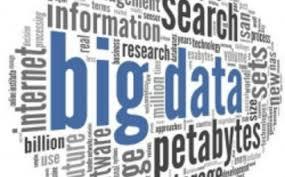
This article was originally posted on Philantopic, a blog of Philanthropy News Digest (PND). PND is a daily news service of the Foundation Centre.
Data has the potential to help nonprofit organizations work at a scale larger than ever before and to solve problems more efficiently and effectively. Data can help organizations improve their monitoring and evaluation, determine where the biggest problems lie and where the most value can be added, influence policy through evidence, increase their reach, and enhance their fundraising capabilities.
But big data analytics and artificial intelligence have mainly been developed for and by the private sector. The good news is that third sector organizations increasingly are using data for social good, from predicting child welfare needs and monitoring climate change to working toward new cancer treatments.
Large nonprofits can use their brand power to leverage data-sharing partnerships with private companies, pay for expensive data-analytics services, or hire in-house data scientists. But for smaller charities, working with new data methods and analytics requires capacity, funding, and partnerships they typically don't have and can't easily secure.
That was underscored by Lloyd's Bank UK Digital Business Index 2016, which found that almost half of UK charities lack basic digital skills and that 80 percent are not investing in digital technology at all, let alone in big data. It's not difficult to see why: if comes down to a choice between hiring a program officer or a data officer, or between acquiring data analytics capabilities and additional project funding, most charities will choose to spend their limited resources in ways most likely to impact their constituents and communities.
Here at the Social Innovation Exchange (SIX), we recently conducted a global scan highlighting how data is being used in different ways for social good, emerging challenges in the field, and how philanthropy can be and is engaged in this work.
For starters, philanthropy can help level the playing field by addressing some of the biggest obstacles facing small charities in using data for good, including often-prohibitive costs, a lack of human capital, insufficient leverage to form data philanthropy partnerships, and a difficult regulatory environment.
But there is hope.
Below, we highlight four examples of how philanthropy is supporting smaller charities to better engage in this work:
1. Funding. The Paul Hamlyn Foundation and City Bridge Trust recently provided support to Khulisa, a small UK criminal justice charity, to hire a dedicated analyst to help it implement a strategic plan designed to shift the organization toward evidence-led work and give it more influence in policy conversations, thus driving greater systemic change.
2. Human resources and additional capacity. Uptake.org, the philanthropic arm of data analytics company Uptake, recently granted $1 million to the School of Computer Science at Carnegie Mellon University to establish a Machine Learning for Social Good fund that will provide free machine learning and data science assistance to nonprofit organizations and governmental agencies. Elsewhere, DataKind UK, funded by Omidyar Network and others, brings together teams of pro bono data scientists with social change organizations on projects that use data to transform their work.
3. Access to data. Through its Data Labs project, New Philanthropy Capital is serving as a trusted intermediary between nonprofits and government agencies, enabling the former to access government data for the purposes of program impact measurement. Challenge prizes sponsored by foundations and private organizations are another way for organizations to access large amounts of data. In 2013, for instance, the Bill & Melinda Gates Foundation's Grand Challenges Explorationsprogram awarded grants to six nonprofit projects focused on bringing together large datasets to solve social problems. One winner, NetHope's Open Humanitarian Initiative, built a tool to help humanitarian charities share their data in real time, helping to save more lives both during and after a disaster.
4. Enabling Environment. The UK-based Charities Aid Foundation has launched the Future:Goodinitiative with the goal of highlighting the ways in which civil society can play a positive role in shaping and responding to new technological trends. That work includes encouraging government to make technology a key part of its civil society strategy and supporting the idea that civil society organizations are intrinsic to the conversation around responsible technology.
Beyond increasing the use of data for good, there's another pressing reason charities should be supported in their efforts to collect and use data.
In this digital moment, privacy and security breaches and the manipulation of public opinion are top-of-mind concerns for people everywhere. The growing concentration of data in private hands means that individuals and smaller organizations are often left without a voice with respect to these issues and on how data is being used (and abused) to shape our lives.
In this critical moment, philanthropy needs to look for ways to engage smaller charities in this work — not only to keep them from being left behind, but also to ensure that their voice — and the voices of the communities they represent — are heard in the important debates around the ethical use of data.
------------------
This blog is part of a larger project on the role of philanthropy in using data to solve complex problems. A global scan highlights many initiatives using data for good, the main methods, how philanthropy is engaging, and the challenges faced.
------------------
Want to read more great content like this? Sign up to our newsletter for regular updates.
For questions or comments, contact Jordan.Junge@socialinnovationexchange.org










Add new comment